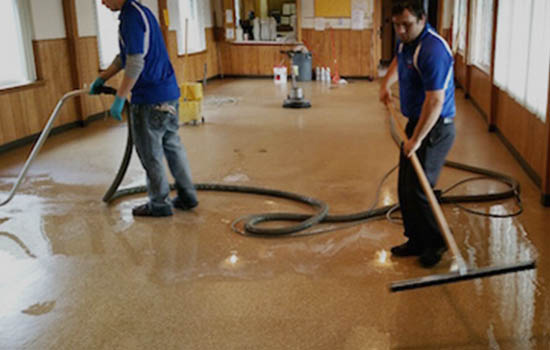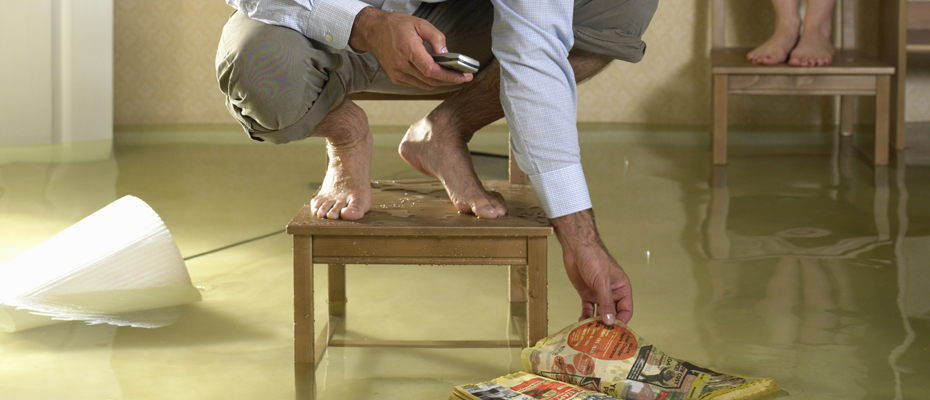Water damage can be a real hassle to deal with if it’s not handled right away. Learn about the different types of water in this article, what to do in case you find yourself with water at your home or business, and what you should know as a homeowner when dealing with an emergency water situation.
What is Water Damage?
Water damage is defined as any damage to property or equipment caused by water. This can include anything from leaking water from a broken pipe, to flooding caused by heavy rains or melting snow.
If you think you may have suffered water damage, the first step is to turn off the main water supply and call your service provider. Once the water has been shut off, it’s important to assess the extent of the damage and take appropriate action.
Here are some things to keep in mind if you suffer water damage:
- Try not to touch or move anything that is wet or may have been affected by water. This includes objets like furniture, electronics, and paintings. If possible, wait for a professional to arrive before you start cleaning up.
- Don’t try to fix any damaged property yourself. If something needs to be fixed, call a professional plumber. Damage caused by trying to fix something yourself can lead to even more serious problems down the line.
- If you smell gas or see sparks coming from something in your home, don’t attempt to use it. Turn off all appliances and call a professional immediately.
Types of Water Damage
If you have water damage, there are a few things you need to know. First, water damage can be caused by any number of events, from a broken pipe to a flood. Second, water damage can range in severity from minor surface moisture damage to total structural failure. Third, there are several types of water damage that require different treatments. Fourth, there are several steps you can take to minimize the damage and speed up the restoration process.
Water damage is one of the most common home repairs, and for good reason: it’s both costly and inconvenient. In fact, according to the National Association of Home Builders (NAHB), water damage costs U.S. homeowners an estimated $48 billion each year! That’s a lot of money, and it doesn’t take long for minor water damage to become major problem. Here’s what you need to know if water damages your home:
1) Water Damage Can Be Caused By Any Number Of Events
Water damage can be caused by any number of events – from a broken pipe to a flood. In fact, broken pipes are responsible for about 40% of all water damaged homes. Flooding is another common cause of water damage – especially in
The Cost of Water Damage
Water damage is not only expensive, but it can also be damaging to your home and belongings. Here are some tips to help you understand the cost of water damage, and what you need to do if it happens to you.
- Water damage can be costly, both in terms of the cost of repairs and lost property. Estimates range from $500-$10,000, depending on the severity of the damage.
- Make sure to keep all receipts for any expenses related to water damage, as insurance companies may require documentation in order to reimburse you.
- If your water damages your property, make sure to contact a professional restoration company as soon as possible. Hiring a contractor may be costly, but it will ensure that your home is restored properly and quickly.

Why Should You Do Repairs Yourself?
If you find yourself in a situation where water has damaged your property, it’s important to remember that you can often do the repairs yourself. There are a few key reasons why this is a good idea: first, it can save you time and money. Second, doing the repairs yourself can help to improve your home’s resale value. And finally, DIY repairs can often be more satisfying than having someone else do them for you. So if water damage has affected your property, here are some tips on how to go about fixing it yourself.
How to Avoid Water Damage in the Future
Water damage can be a big headache, but it’s not impossible to prevent. Here are some tips to avoid water damage in the future:
- Keep an eye on your water usage. If you’re using more water than usual, it’s likely that there is a leak somewhere. Check to see if you have a leaky faucet, broken pipes, or a drainage problem. If you’re not sure where the leak is, get a professional to inspect your property.
- Don’t overload your drains. Overloading your drains can cause water to back up and cause damage. Instead of using a lot of appliances at once, try using one at a time and see how long it takes for the water to drain. If it takes too long, there may be an issue with your drains.
- Don’t leave valuables unprotected. If you’re going out for the day and won’t be home for hours, put all of your valuables in a safe place like a locked safe or cabinet. Don’t leave them out on the counter where they’re easily accessible to children or thieves.
Conclusion
If water damage happens to you, be prepared for the aftermath. Here are some tips to help you through what could be a difficult situation:
If you have water damage, it’s important to act quickly. The longer water stays in your home, the greater the chances of damage becoming irreversible. Here are some key things to know if water damage occurs to you:
1) Make sure all of the doors and windows are closed and locked. This will help keep moisture out and prevent further flooding.
2) Turn off all electricity to your home except for essential appliances like heaters, fans, and lights. This will help stop electrocution from happening due to wet wiring.
3) Remove any objects that can catch fire or that could create a dangerous obstacle for firefighters trying to reach your home.
4) If you smell gas or see flames outside your home, DO NOT go near it! Immediately call 911 and evacuate as quickly as possible.
5) Once emergency services arrive, do not try to enter the home yourself; let professionals take over from there.



